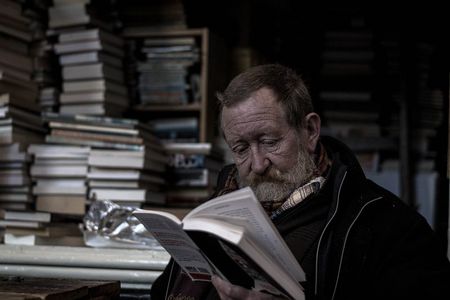Masticationpedia ha una lunga storia. Che inizia alla metà degli Anni Ottanta del Novecento, quando al crescere della propria esperienza professionale il nostro fondatore Gianni Frisardi iniziò a porsi delle domande spinose su alcune aree della conoscenza medica odontoiatrica, per la quale riceveva risposte non sufficienti dalla prassi allora in uso.
Being it common in science in these cases, he began to dedicate an increasingly broader time to study and research, soon starting to acquire from this commitment increasingly clear and objective elements that confirmed the goodness of his intuition. Science is in no hurry, and the scientific answers do not make it easy to be discovered by researchers; so the study took a considerable time, about 35 years, to bring to light evidences which thickness was suitable for scientific discussion.
These have been 35 years of study on neurophysiological procedures, technologies and methodologies applied to the prosthetic, orthodontic and maxillofacial rehabilitation disciplines. And today it is finally possible to share all this.
If at the beginning of the study the computer itself was a very rare object, today we abound in communication technologies, therefore the choice to focus on the Net for the activity of the project should not need explanation. Today, with the Net, not only it is possible to expand contacts between scholars interested in the same subjects wherever they reside, but the possible fields of discussion becomes vast because, once the linguistic problem has been overcome (and technology is also helpful in this), it is easier and more immediate to compare and exchange the respective knowledge.
Masticationpedia was therefore born directly on the Net. It was designed to debut directly online and to communicate primarily online. Without forgetting, of course, that the purpose of Masticationpedia, as well as the Professionals to whom it is addressed, and even before the Patients to whom it is dedicated, are anything but virtual: they belong to a physicality made of pain and thought, with problems and clinical responses that could not be less virtual.
- In order to ensure that the objectives were ensured by an appropriate figure, we simultaneously established the The Charity, which is based in London (United Kingdom) both for the constant professional presence in England of many of our members, and above all for reasons of unsurpassed centrality among the current guidelines for professional medical research.
From the sketching of the first drafts, to the drafting of the first pages intended for the Internet, several years have passed, in which the elaborated contents have been developed and, where appropriate, corrected and expanded. This dynamism in setting significant goals and passages, also suggested this move.
Technically we have therefore chosen, together with our friends Michele Fella and Gianfranco BS, irreplaceable professionals for logistical and technological support, to develop and implement Masticationpedia on the MediaWiki platform; other reasons also comforted us in our choice, not least of which the democratic nature of editorial thought. However, we have applied some specific principles, sometimes different from those of other collaborative projects, including Wikipedia.
In this project, that speaks of medicine, it is obviously necessary to filter and select the contributions of users who will modify or implement it, and unfortunately, due to the very nature of Masticationpedia, it is not possible otherwise. So this site can be read by everyone, but to help deepen the contents of a topic, and in general to modify / implement pages and/or chapters, it will be necessary to follow a path (actually simple) that requires some steps, first of all to create an account and provide their own references.
Finally, an essential clarification to better understand the scientific and editorial philosophy of the platform: Masticationpedia is a convergence site for specialist topics crucial for clinical rehabilitation performance, therefore in fact the reading public will largely concern dentists, but at the same time it will also be a source cultural information for non-professionals.
The knowledge, indeed, is never for professionals only, and we know this well. Unfortunately, in a research project the lexicon is involuntarily selective, the topics already require basic notions that we cannot provide here, therefore we are sorry if it cannot be fully appreciated by all readers; in presence of voluntary contributors who could allow it, however, it is our commitment to work also in the direction of providing an easier information to a wider audience too, other than the specialists of this very particular sector.
With these premises the project was born, while for the developments and the follow-up that it will have, it is now up to those who will contribute to it. And contributing, really, is not that difficult
particularly focusing on the field of the neurophysiology of the masticatory system
